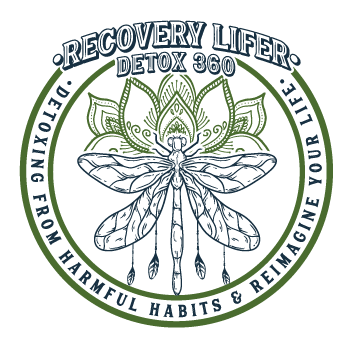Peer Support
What is a “peer”?
A peer is a person who identifies as having an addiction, mental health condition, or challenged with co-occurring disorders (have received a dual diagnosis), and their families who are in crisis. Peers may be incarcerated, on parole, probation, or may have never been arrested. Some peers have attended and successfully completed a treatment program while others have not been to treatment. A peer may be new to the recovery process or already in long term recovery and wanting to access additional support.
What is peer support?
Peer support is community-based, non-clinical support for people in recovery, and it is meant to supplement (not replace) clinical treatment and other services. “The primary responsibility of the Peer Specialist is to support the recovery of the individual and assist them in achieving their own needs, wants, and goals. Peer Specialists are guided by the principle of self-determination for all and shall serve as advocates for the people they serve. Peer Specialists will maintain high standards of personal conduct that foster their own recovery journey.” (NAADAC Arkansas Peer Specialist Program – Code of Ethics)
Peer Recovery Specialists have been trained to use their lived experience to provide support and assist and guide peers on their recovery journey. Peer support includes multiple phases to serve people in early recovery, people discharging from residential programs, people engaged in intensive outpatient or outpatient treatment programs, people currently incarcerated or otherwise engaged with the justice system, and people who find themselves in other situations or desiring more direct guidance and assistance with their recovery.
Peer support helps peers find meaningful, deep connection to the world around them and therefore a more sustainable road to recovery. “Peer support services can effectively extend the reach of treatment beyond the clinical setting into the everyday environment of those seeking a successful, sustained recovery process.” (SAMHSA, 2017)
For more information, click the button below to contact our peer recovery support specialist.
Types of Peer Support:
The most common form of peer support are Recovery Coaches and Peer Support Specialists. They help the individual determine the recovery pathway that best suits their needs instead of guiding them down any specific pathway. The use of four main supports help achieve and maintain recovery:
- Emotional – empathy, caring, concern
- Informational – practical knowledge such as referrals and community resources that support health and wellness and vocational assistance
- Instrumental – concrete supports such as assistance gaining access to healthcare, housing, employment or other social services
- Affiliation – introductions and connections to healthy social contacts, recovery community supports,
Peer Support Services:
- Help crafting individualized recovery plans and support to achieve long-term recovery goals
- Job searches, career planning, and training resources
- Assistance in identifying and navigating potential roadblocks, like getting a driver’s license, addressing outstanding warrants, etc.
- Information for local transitional living facilities, and local treatment providers that offer all levels of care: detox, inpatient, residential, and outpatient
- Connection with a recovery, faith, or other defined community
- Connecting to recovery resources and relational networks
- Finding local recreational activities with others in recovery
- Food insecurity assistance
- Transportation assistance
- Housing assistance
- Workshops & training (personal and professional development)
- Peer-led support groups
Peer-led Support Groups:
Currently peer support groups are available to participants of Recovery Lifer programs while some are held at service provider locations or virtually upon request. An increase in available support groups are included in the launch of Recovery Lifer. Updates will be announced on our website and social media. For more information contact us.
Recovery Lifer not only provides education but also personal and professional development workshops and trainings for interested individuals and others in the community. Together we work through strategies to address their recovery needs, housing and employment opportunities. Recovery Lifer partners with other service providers and volunteers in the community to help solve these problems. In the process, the peers get the opportunity to develop a true support network.
Benefits of Peer Recovery Services
- Improved relationship with treatment providers
- Decreased emergency service utilization
- Reduced re-hospitalization rate
- Reduces substance use
- Greater housing stability
Email: recoverylifer@gmail.com
Phone: (479) 320-4834
Coming soon…
- Our Store
- Hire a Peer Specialist
- Careers
*DISCLAIMER: THIS WEBSITE DOES NOT PROVIDE MEDICAL ADVICE. The information, including but not limited to, text, graphics, images and other material contained on this website are for informational purposes only. No material on this site is intended to be a substitute for professional medical advice, diagnosis or treatment. Always seek the advice of your physician or other qualified healthcare provider with any questions you may have regarding a medical condition or treatment and before undertaking a new health care regimen, and never disregard professional medical advice or delay in seeking it because of something you have read on this website.
